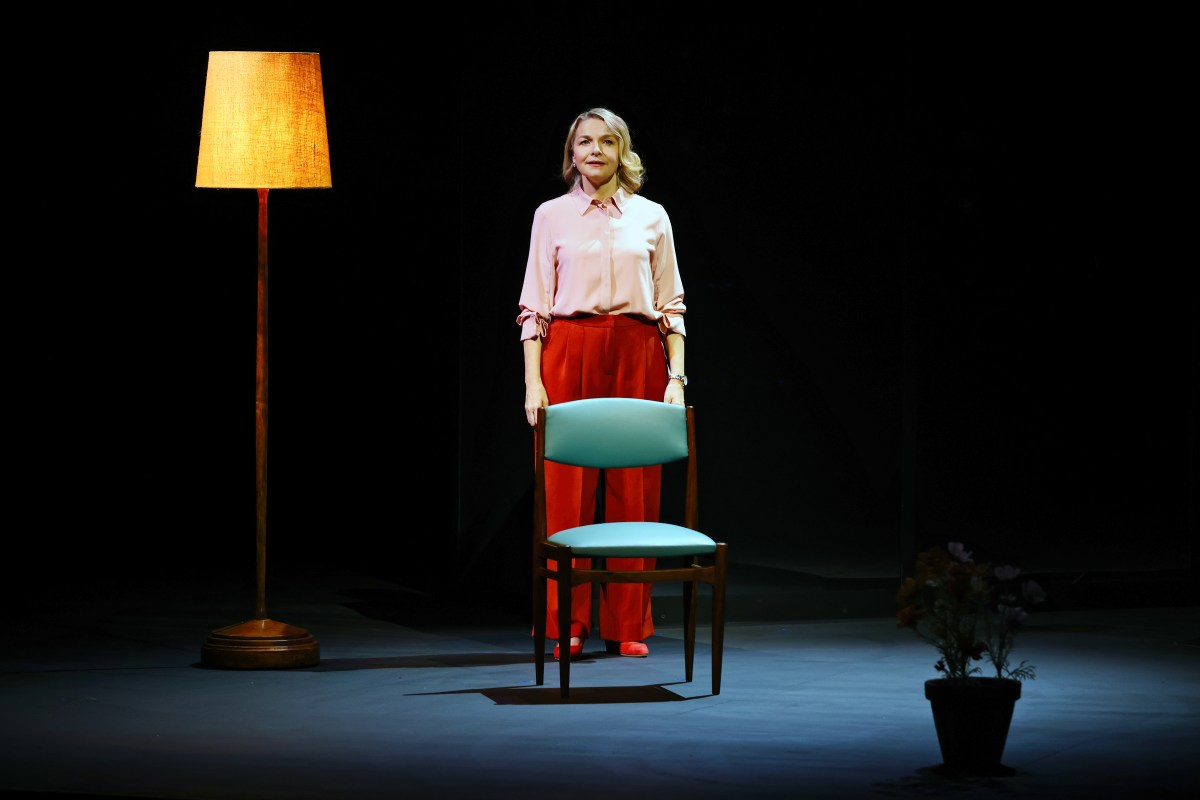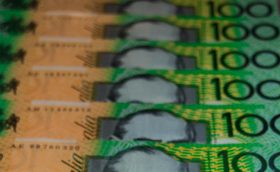The following review was first published last year, when this production premiered in Sydney and was updated to cover its recent Melbourne season. It is now heading to the Canberra Theatre Centre.
This is what happens when a playwright, an actor, a director and a creative team, all at the top of their game, come together.
The play is about Australia’s first, and so far only, woman Prime Minister, Julia Gillard. It begins and ends with what has become recognised as Gillard’s defining parliamentary performance – the famous 2012 misogyny speech. It traces her personal and political life from her childhood in Wales, to her ascension in politics, and the influences that shaped and guided her both as a person and as a savvy political operator. It is the creation of esteemed playwright Joanna Murray-Smith, who has brought together a combination of references to true events, extracts from published works, interviews and fictitious commentary and opinions to craft the narrative. The writing teems with wit, desire and tenderness.
All this emotional and dramatic chiaroscuro in the source materials and the writing provides the basis for Justine Clarke to craft a truly compelling performance as Gillard. She commands the stage at all times and manages to consistently hold the audience’s attention throughout the entire 90-minute show. This is in part made possible by the weave of different modes and registers of address in Clarke’s performance. She changes the tone of her voice, which oscillates between narrator and an impressive mimicking of the former prime minister’s distinctive Australian accent, as well as skilful shifts from high-energy and cracking comedy to more tender, introspective moments.
The Gillard voice is employed mainly when directly quoting Gillard herself. Clarke also gives a noteworthy imitation of Tony Abbot’s signature smug grin. Her delivery is pitch perfect. The script is so strong and the vision and concept of director, Helpmann Award-winner, Sarah Goodes, so crystal clear that it allows Clarke to have the certainty of bringing the audience with her in the play of nuance, conviction and timing. The audience witnesses Gillard’s career progression, as well as the personal plights of a complex and powerful woman. The play celebrates Gillard, but also does not shy away from the contradictions and moments in her career when she goes against her own values for political gain. This is emphasised by reminders of her father’s words, which, at times, come back to haunt her.
The role of the media, particularly the right-wing media, is explored and highlighted as the cruel peddler of much of the gendered vitriol levelled at Gillard, from stereotypical name calling, to the abhorrent comments from shock jock Alan Jones about her father’s death. The experience of former New Zealand Prime Minister Jacinda Ardern, who in her career faced constant sexist and misogynistic attacks, shows that little has changed.
This raises the question, continual throughout the play, of how much progress has actually been made in the decade since Gillard’s Prime Ministership. The question of the future of the role of women in politics is evoked throughout by the constant presence of one other person on stage, noted only as “young woman”. This character stands on the sidelines watching Gillard, handles props and facilitates costume changes.
She says nothing at all until the crescendo at very end, when Clarke gives an inspirational and commanding reading of the complete misogyny speech, which culminates in accumulating images in the background of a diversity of women. At this point, the audience erupts in appreciation of the whole story, of Gillard, Murray-Smith, Clarke, Goodes and the outstanding production that frames and enhances their work.
The stage is designed as a sparse yet evocative space. A square light on the floor and circular light on the ceiling work to frame and illuminate the character. The mirrored backdrop serves as projection screen and gives depth to the space. These visual effects, along with the simple yet effective lighting changes work to carry shifts in tone and mood. The music ranges from gentle electronic ambient atmospherics to thumping rock music in an entertaining high-energy 1980s flashback scene. Clarke’s costume slowly changes over the course of the play, beginning in more casual mode, then ending with classic blue blazer and red wig for the speech itself.
Read: Performance reviews: RISING Festival, first weekend
As recent history, this play is more relevant than ever. Despite some progress, women all over the world are still fighting for human rights, representation and against violent oppression. Julia is a masterful work of collaborative art highlighting one perhaps small but powerfully symbolic and significant moment in this progression, in its successes, its limitations and the ultimate price of power.
Julia by Joanna Murray-Smith
Director: Sarah Goodes
Designer Renée Mulder
Composer and Sound Designer: Steve Francis
Cast: Jessica Bentley, Justine Clarke
Julia will run at the Canberra Theatre Centre from 31 July to 10 August.





